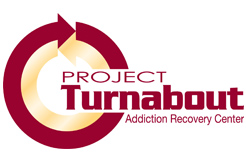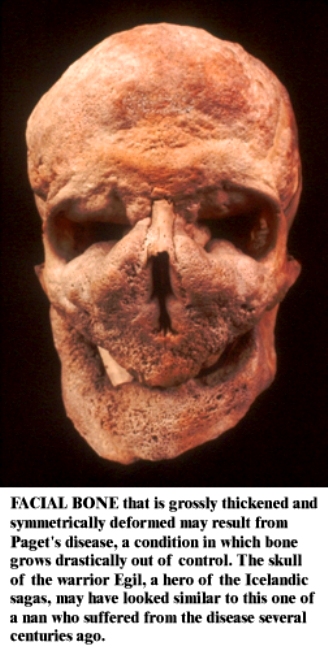Causes Of Gambling Disorder
Pathological gambling disorder is seen as gambling which is uncontrollable and can alter and adversely affect the individual’s recreational and social activities. This disorder has an extremely disruptive and adverse affect on the life of the individual that suffers from it. As a result of this pathological gambling, individuals may end up losing all of their life savings, and may also be forced to commit various crimes including forging checks, stealing or embezzling in order to acquire more money to fulfill their compulsive habit. This disorder can also lead to the development of major problems in relationships as well as jobs.
Pathological gambling can also be described as an Impulse Control Disorder1 or process addiction which is different from addictions to elements such as alcohol, food, tobacco and drugs. These types of addictions include a ‘high’ or a ‘rush’ which is gained when certain actions are performed as part of the addictive behavior. In case of gambling, the individuals may gain the ‘high’ from the overall setting and atmosphere of the place, for example a bingo hall, casino, race track and other places. The feeling that the individual gets from taking risks in this environment can evoke the addiction further. In many cases it is seen that compulsive gamblers own a piece of clothing or accessory which they claim is lucky for their gambling, and hence wear it every time they participate in a gambling activity. Some of these individuals use the piece of clothing or accessory to acquire the ‘high’ or ‘rush’ before gambling.
Causes:
The definite causes of pathological gambling disorder are unknown, although there are a number of studies and surveys that indicate that there is a significant difference on biological levels, between the general population and the compulsive gamblers. These surveys however cannot form the basis of the causes of pathological gambling. Many people tend to use their habit of gambling in order to gain an escape from signs of depressions which is more commonly seen in women than in men. Some of the gamblers seek to gamble in order to alter their moods because of the intense amount of energy and excitement that is commonly seen in gambling rooms. Thus, it is common to find that some people may be interested in other aspects of gambling than simply the money that is involved. It can be said that they ‘rush’ or ‘high’ that is seen in individuals suffering from pathological gambling disorders may not be associated with the money.
- At the same time, there might be other factors that can trigger gambling addiction. It might be mental health problems like bipolar disorder, obsessive-compulsive disorder, and ADHD. Personality traits may also be the cause of addiction. For example, some people are in constant search for excitement and thrill.
- Studies such as these also demonstrate the need for treatment focused specifically around gambling disorder and its underlying causes. Remaining Stigma Around Gambling Addiction Despite our improved understanding of gambling addiction, and its increased prevalence in society, there remains a stigma around the issue.
Symptoms:
There is no one single cause of gambling addiction. Instead, there are multiple causes that can be grouped into four basic categories. These four categories are: 1) biological causes, 2) psychological causes, 3) socio-cultural causes, and 4) spiritual causes. Psychologists call this the Bio-Psycho-Social-Spiritual Model of addiction. Gambling disorder can be caused by various factors. Many individuals, including young adults and adolescents, are likely able to resolve their gambling disorder over time, bit that is dependent on if the individual suffered from prior gambling problems. Gambling disorder tends to run in families, but environmental factors may also contribute.

Some of the most common symptoms that are seen in individuals suffering from pathological gambling disorder include immense amount of preoccupation with activities associated with gambling which tend to interfere with the individual’s social, occupational and personal life. The individual fells that he/she cannot control these gambling instincts and thus continues to visit casinos to place bets, failing to stop or cut down on the habit. One of the most commonly seen behaviors among compulsive gamblers is known as chasing. Chasing refers to placing bets of large amounts of money and thus taking more risks. This is done in order to make up for money that has been lost in gambling previously by the individual. The individual is also prone to immoral activities such as lying, forgery, stealing, fraud involved with credit cards, embezzling, and various other behaviors that are associated with acquiring money for gambling.
Demographics:
Gambling disorder affects more males than females in the United States with a sex ratio of 2:1. Over all as many as 4% of the population of the United States might meet the criteria for the disorder. In some countries this percentage is as high as 7%.
Diagnosis:
The disorder is usually diagnosed when an affected persons family or spouse become concerned and is seldom self reported. The most common symptom that most patients suffer from is Denial.
The Diagnostic and Statistical Manual of Mental Disorders(4th edition), specifies that a person affected with pathological gambling disorder must have at least 5 of the following symptoms to meet the diagnostic criteria for the disorder:

- The person thinks about gambling almost all the time
- The person keeps using larger and larger amounts of money every time when gambling
- The person has tried to stop gambling but has been unable to do so
- Whenever the gambling is stopped, the person becomes moody or cranky
- The person uses gambling as a method to escape problems
- The person continues to gamble in order to win back the money that has been lost (“chasing”)
- The person lies about the severity and extent of gambling
- The person has engaged in illegal or immoral behavior in order to make money for gambling
- The person has problems at home or work because of the gambling
- The person tends to rely on other people to get out of financial problems that have been caused by gambling
Treatments:
There are many treatments available for pathological gambling disorder:
- Psychodynamic Psychotherapy
- Cognitive Behavioral Therapy
- Substance Abuse Treatment
- Relaxation Techniques
- Aversion Therapy
- Gamblers Anonymous
References:
Impulse Control Disorders: A Clinician’s Guide to Understanding and Treating Behavioral Addictions Jon E. Grant
APA: Diagnostic and Statistical Manual of Mental Disorders. 4th ed. text revision
While gambling can be a fun, harmless activity for many, it can also lead to the development of compulsive behaviors.
The rush of betting and the anticipation of winning can be thrilling, but for some, those feelings can become addictive.
When gambling becomes addictive, it can cause a person to feel an uncontrollable desire to continue gambling, even if it is negatively impacting their life.
Much like an addiction to drugs or alcohol, gambling stimulates the reward system in the brain. A person can become addicted to the rush of gambling even when faced with consequences such as increasing debt and loss of savings. Unlike most casual gamblers who may stop when they are losing or set a limit, a person with a gambling addiction will keep pushing forward. While they may be compelled to try and recollect all of their money, it encourages behaviors that are destructive and impossible to sustain.
Signs & Symptoms of Gambling Addiction
It can be difficult to identify when casual gambling becomes a problem. This is because gambling addiction can cause a person to become more secretive and lie about their behaviors. With the introduction of online gambling, it can be even easier to conceal when it becomes problematic.Signs and symptoms of gambling addiction you may observe in someone include:
- Becoming preoccupied with gambling
- Gambling increasingly larger amounts of money
- An inability to cut back or stop gambling
- Gambling to escape stressors of everyday life
- Feeling irritable or anxious when not gambling as often
- Lying about gambling habits to friends or family
- Asking for financial help when gambling has cost too much money
- Putting employment, relationships, and other responsibilities at risk in favor of gambling
- Stealing to support gambling habit
Risk Factors for Gambling Addiction
While it is not known what exactly causes a gambling addiction to develop, there are some risk factors that are often found in those who exhibit signs. These include:
- Presence of mental health disorders: Compulsive addiction is often found in people who struggle with another mental health disorder. This can include substance abuse disorders, personality disorders, or depression and anxiety.
- Age: Gambling addiction is most commonly observed in young adults and middle-aged adults.
- Sex: Men are more likely to develop an addiction to gambling than women. When gambling addiction develops in women, it is often later in life and spirals more quickly.
- Influence from others: Having a friend or family member in your life who also struggles with gambling addiction can increase your risk for it as well.
- Personality Characteristics: Those who are workaholics, impulsive, or easily bored can be at a higher risk for developing an addiction to gambling.
Compulsive gambling can have dramatic repercussions, causing a person to struggle with life-long issues as a result.
Gambling can cause a person to develop relationship problems, financial and legal issues, and may cause a person to experience loss of employment and poor health. Without proper intervention, gambling can cause a person to lose control of their life completely.
Although there is no way to completely prevent a gambling addiction from developing, there are ways to help educate people about the risks and intervene if an addiction has developed. Understanding the risk factors can help a person become more self-aware regarding their own patterns and seek help should gambling begin to affect their quality of life.Treatment for gambling addiction uses similar therapy options found in substance addiction treatment.


What Does Treatment for Gambling Addiction Include?
Treatments for gambling addiction may include:
- Therapy: Therapy is one of the most commonly utilized form of care for gambling addiction. Using approaches such as cognitive behavioral therapy (CBT) can be beneficial as it helps a person identify what motivates addictive behaviors. Once they have a better understanding of where the underlying drive comes from, they can actively work to reduce the urge to gamble by changing the way the feel and think about the activity itself.
- Medications: In cases where gambling is fueled by underlying mental health disorders, medications may be used to help relieve symptoms. By reducing the impact of these symptoms, a person can focus on their mental health needs and develop healthy coping mechanisms rather than using gambling as a destructive outlet.
- Self-help groups: Some find it beneficial to connect with others who share similar experiences. Self-help groups provide the opportunity to connect with others who have faced similar challenges. In these group settings, members can both give and receive support and are able to learn from the experiences of others.
Gambling addiction is widespread and with increased access to it through online venues, the need for education and policies is more apparent than ever. Online availability makes gambling accessible to anyone, regardless of age, and can put many at risk for life-changing consequences should the behavior escalate. If you suspect a loved one is struggling with gambling, it is important to intervene as quickly as possible in order to address its negative impact on their life before it spirals further.
Causes Of Gaming Disorder
If you or a loved one are struggling with addiction, we’re here to help. Contact us today and speak with one of our trusted recovery advisors.